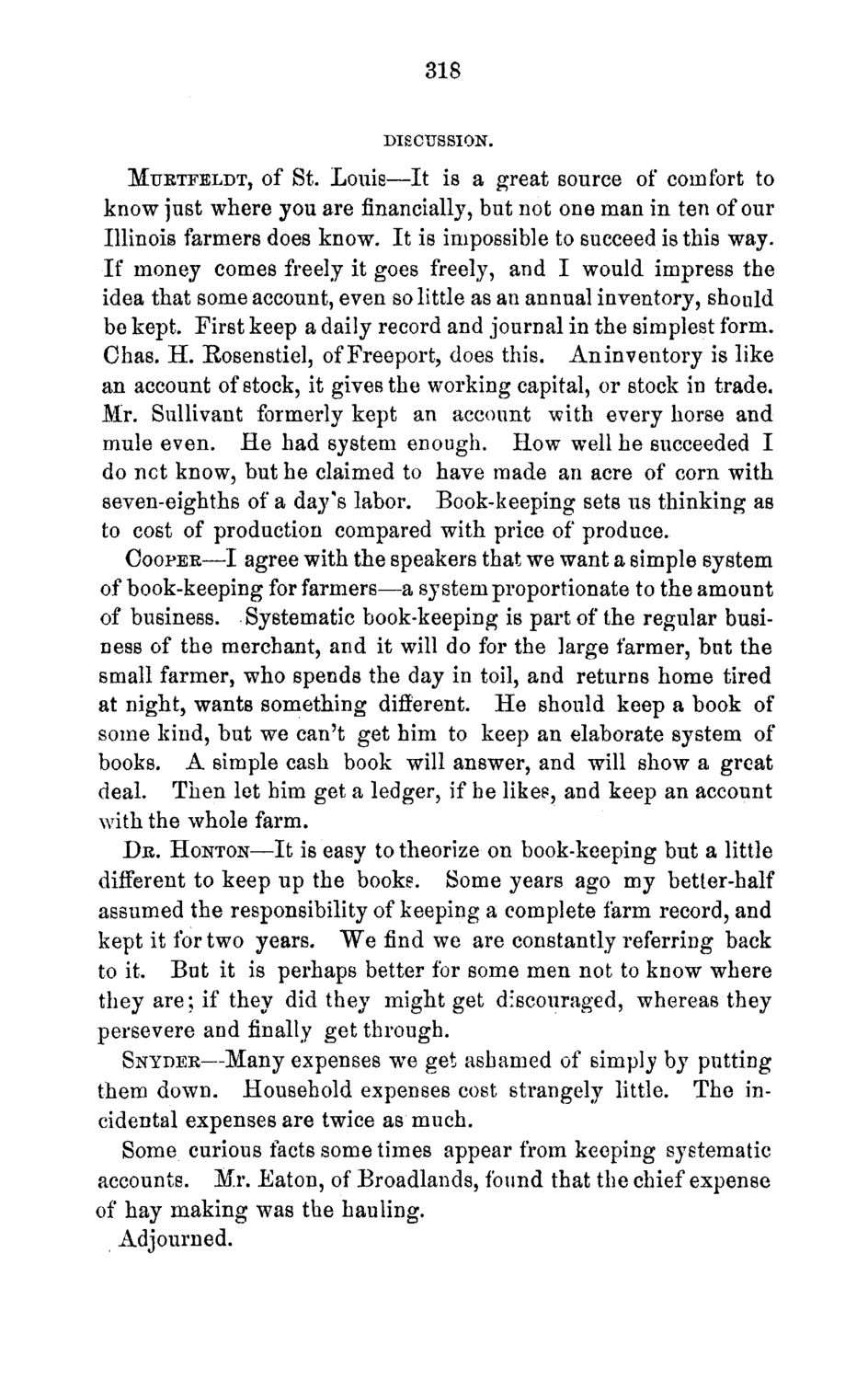| |
| |
Caption: Board of Trustees Minutes - 1870
This is a reduced-resolution page image for fast online browsing.

EXTRACTED TEXT FROM PAGE:
318 DISCUSSION. MURTFELDT, of St. Louis—It is a great source of comfort to know just where you are financially, but not one man in ten of our Illinois farmers does know. It is impossible to succeed is this way. If money comes freely it goes freely, and I would impress the idea that some account, even so little as an annual inventory, should be kept. First keep a daily record and journal in the simplest form. Ohas. H. Rosenstiel, of Freeport, does this. Aninventory is like an account of stock, it gives the working capital, or stock in trade. Mr. Sullivant formerly kept an account with every horse and mule even. He had system enough. How well he succeeded I do net know, but he claimed to have made an acre of corn with seven-eighths of a day's labor. Book-keeping sets us thinking as to cost of production compared with price of produce. COOPER—I agree with the speakers that we want a simple system of book-keeping for farmers—a system proportionate to the amount of business. Systematic book-keeping is part of the regular business of the merchant, and it will do for the large farmer, but the small farmer, who spends the day in toil, and returns home tired at night, wants something different. He should keep a book of some kind, but we can't get him to keep an elaborate system of books. A simple cash book will answer, and will show a great deal. Then let him get a ledger, if he likes, and keep an account with the whole farm. D R . HONTON—It is easy to theorize on book-keeping but a little different to keep up the books. Some years ago my better-half assumed the responsibility of keeping a complete farm record, and kept it for two years. We find we are constantly referring back to it. But it is perhaps better for some men not to know where they are; if they did they might get discouraged, whereas they persevere and finally get through. SNYDER—Many expenses we get ashamed of simply by putting them down. Household expenses cost strangely little. The incidental expenses are twice as much. Some curious facts some times appear from keeping systematic accounts. Mr. Eaton, of Broadlands, found that the chief expense of hay making was the hauling. Adjourned.
| |